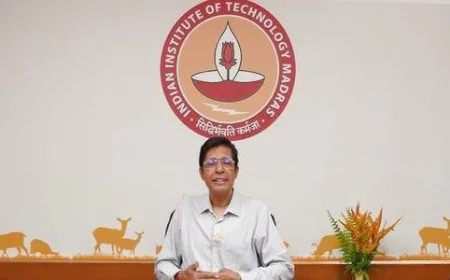Teach Your Children These Five Things If You Want Them To Grow Up To Be Cultured
These five core teachings provide the groundwork for tolerance, acceptance, and a profound understanding of the diversity of our global community.

It is more important than ever to foster cultural awareness in our children in the fast-paced society we live in. There are five essential lessons that we, as parents, guardians, or educators, should teach our children in order to help them grow up to be well-rounded, culturally aware people.
1. Accepting Diversity Right Away
Instill in your kids the value of variety. Introduce them to other viewpoints, customs, and civilizations. Promote connections among classmates from many origins to cultivate an early understanding of the diversity of cultures in our lives.
2. The Influence of Sympathy
Want to get your story featured as above? click here!
Want to get your story featured as above? click here!
Cultural understanding is based on empathy. Help your kids learn to walk in other people’s shoes. Tell children tales that showcase a range of experiences to foster empathy for individuals from various backgrounds.
2.1. Using Narrative as a Tool
Use narrative as a potent tool to communicate subtle cultural differences. Stories has a special power to enthrall young minds and impart important lessons about tolerance, acceptance, and celebrating diversity.
3. Using Food to Explore Cultures
A culture’s food is one of the most delicious ways to learn about it. Engage your kids in the kitchen by letting them try out different international dishes. This gives children a practical education in the value of culinary traditions in addition to introducing them to a variety of tastes.
3.1. Using Cooking to Explore Culture
Make cooking an exciting cultural experience. Talk about the history of traditional recipes, the importance of certain meals, and the origins of components. Make it a family activity and create an atmosphere that makes learning tasty and interesting.
4. Thank You for Holidays and Festivities
Cultural festivities provide an insight into a community’s soul. Encourage your kids to take part in different festivals and festivities so they may get a personal look at customs, traditions, and the festive atmosphere that goes along with these occasions.
4.1. Active Involvement
Encourage active engagement rather than just watching. Engaging in activities such as creating decorations, mastering traditional dances, or participating in cultural games fosters comprehension and creates lasting memories.
5. Global Citizenship: Recognizing the Connectivity of Our World
Instill in your kids the idea of global citizenship. Inculcate a feeling of responsibility towards the global community. Talk about world concerns, focusing on how our planet is interrelated and how each person can help to create a peaceful future.
5.1. Little Deeds, Great Effects
Emphasize how little deeds of respect, love, and understanding go a long way toward creating a society that is more inclusive of all cultures. Encourage children to think that no matter how little an influence they may have, they can make a difference.
Developing Cultural Sensitivity: A Lifelong Process
In summary, raising children with a sense of cultural awareness is a lifelong endeavor. These five core teachings provide the groundwork for tolerance, acceptance, and a profound understanding of the diversity of our global community.




































.jpeg)































































































